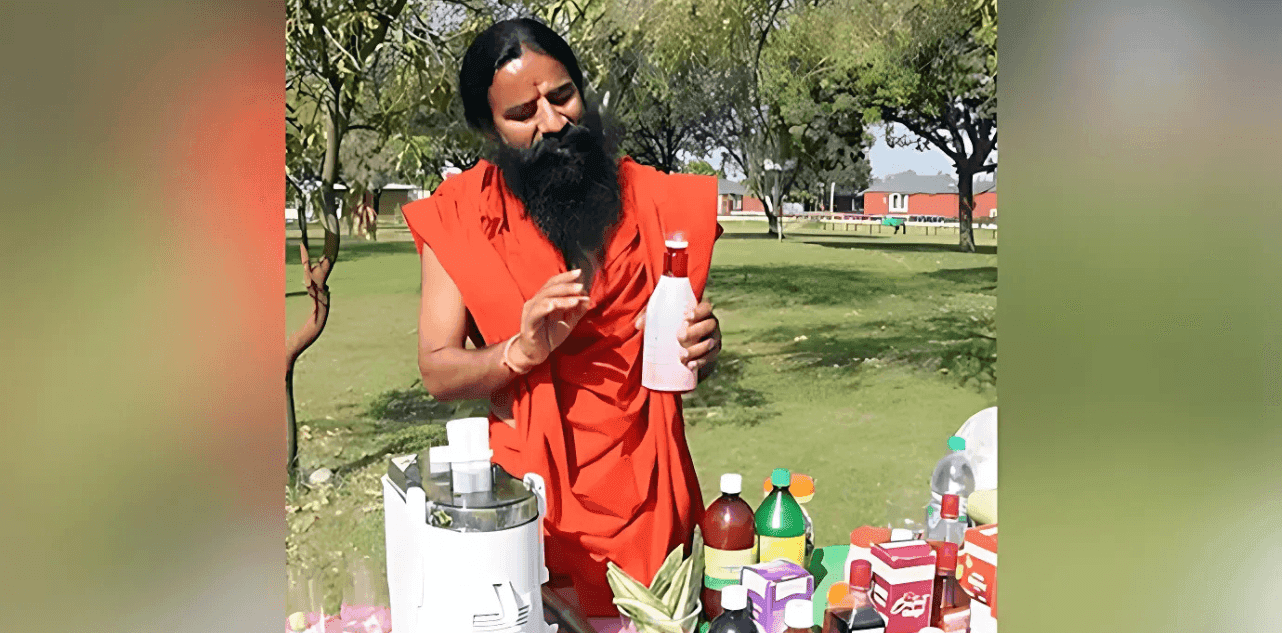Monday 16 February 2026
Baba Ramdev Defends his 'sharbat jihad’ Remark While Delhi HC Reprimands him
Share

Baba Ramdev, known for his controversial and often incendiary remarks, has once again ignited a storm—this time over summer drinks. In a video that quickly went viral, the Patanjali co-founder used the term “sharbat jihad” while promoting his brand’s rose-flavored beverage, claiming that profits from a rival product are used to build mosques and madrasas.
Indian politicians, civil groups, and online activists strongly protested the statement, as they believe Baba Ramdev uses marketingof indigenous products to create social division between communities.
However, Delhi High Court has reprimanded him and the HC bench led by Justice Amit Bansal ordered Pantanjali Foods to take down the controversial advertisement.We got "Sharbat Jihad" before GTA VI pic.twitter.com/qIuLrkhJxe
— Yash Tiwari (@DrYashTiwari) April 9, 2025
Baba Ramdev starts the recently circulated video material by mocking carbonated soft drinks that he describes as toilet cleaning products before warning viewers to stay away from these beverages during summer.
“In the name of quenching thirst, people are drinking what’s essentially toilet cleaner,” he says. “This is a slow attack… like consuming poison.”
The discussion shifts to traditional drinks while making an indirect but unmistakable attack on the drinks produced by the Muslim organization Hamdard Laboratories, which manufactures Rooh Afza.
“This is Sharbat Jihad.”
Without specifically mentioning the brand, Baba Ramdev accuses that the funds generated on the sales of a particular sharbat brand are being used to fund religious institutions.
“That company uses its sharbat earnings to build mosques and madrasas,” Ramdev claims. “And that’s fine—it’s their religion. But people should know what they are supporting.”
He requests people to buy Patanjali's rose sharbat because the funds generated will support the operations of gurukuls combined with Patanjali University and Bharatiya Shiksha Board to protect Indian culture.
“This is not just commerce—it’s about ideology,” he says. “This is sharbat jihad, like love jihad and vote jihad. People must wake up.”
The term “sharbat jihad,” clearly modeled on earlier controversial phrases like “love jihad,” has been widely condemned for injecting religious rhetoric into consumer choices. Critics say that connecting ordinary products to religious donations and communal politics is a dangerous precedent.
Social media platforms were soon flooded with reactions, with many calling the statement “hate-mongering in the name of business.” Several users also accused Ramdev of defaming a legacy Indian brand to boost sales for Patanjali.
While Patanjali has not released any official clarification, the video remains online, shared by a Facebook page called Patanjali Products, accompanied by a caption warning families against the so-called “poison” of certain cold drinks and sharbat.
This episode has thrown fresh light on the growing trend of blurring lines between commerce, religion, and politics. Critics argue that by injecting communal undertones into consumer choices, such narratives fuel division rather than competition—distorting the essence of free markets and peaceful coexistence.
Although Hamdard Laboratories—widely presumed to be the target—has not released a public statement, legal experts believe Ramdev’s remarks could potentially violate defamation laws or incite communal disharmony.
Across party lines, political leaders and civil society voices are urging restraint and accountability, warning that public figures must not use their platforms to inflame sentiments for commercial or ideological gain.
This is not the first time Baba Ramdev has stirred the pot. From criticizing allopathy during the pandemic to comments on women’s clothing and conversion, his track record is dotted with provocative remarks. Yet, this latest episode appears to mark a new shift—weaponizing a summer drink to push cultural and religious narratives.
Newsletter
Stay up to date with all the latest News that affects you in politics, finance and more.